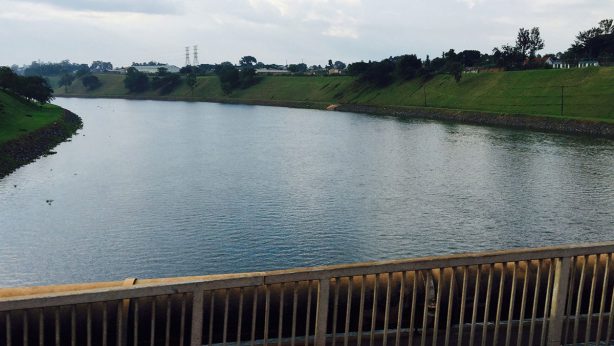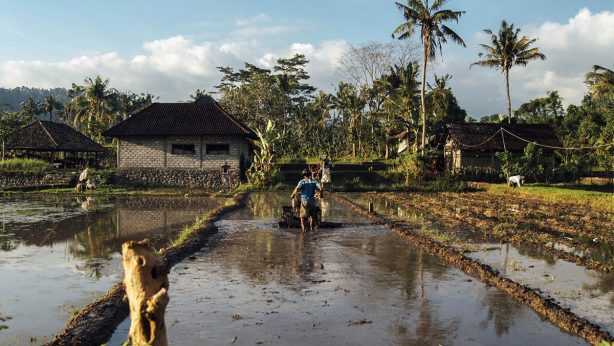The Africa We Want; Youth Voices
Hearing What the Youth in Africa Are Doing

[ ELEPHANTS WALKING THROUGH GRASS, AMBOSELI 2008
Photo: http://nickbrandtphotography.blogspot.co.ke/ ]
To stand on the vast plains of Samburu or any gazetted park across Africa and enjoy the view of migrating elephants, is an amazing experience. But finding the elephants is a whole different story. If you try to locate a herd of elephants by listening for the noises they make, more often than not, your efforts will be in vain. This is simply because elephants often choose to communicate in an infrasound, which simply means that they make low-frequency sound waves that are inaudible to the human ear.
As I begin to draw similarities between elephants and the youth of Africa, I would like to begin by admitting that the youth of today strikingly resemble all elephant species across her continent. Living in the wake of post-colonialism, a liberated Africa, an era of sustainable development and a time when everyone both within and without the confines of Africa’s borders echo that the 21st Century is Africa’s century, as quoted in the Agenda 2063 of the African Union development plan, I believe that it is time for the youth to make a difference. If there ever was a time for the young people in Africa to rise up to the occasion, it is now more than ever. They need to voice their opinions and let their communities, their towns, their countries, their continent and the world know what they want for Africa!
Though at face value it may seem that the youth are silent, whispers can be heard; whispers from young people who deep down long for a different Africa, a better Africa. The youth are discussing the disappointments they have about their country; they are complaining about poor governance, corruption, poverty and food insecurity, they murmur against current developments and the lack thereof, but we seldom hear the solutions to the problems they speak about. Perhaps it is because they have chosen to let their actions speak louder than their words.
You see, it takes an ordinary person to identify a problem, but it takes an extraordinary person to invent a solution. Africa thirsts for solutions, solutions for today and tomorrow and if we claim that a countries future lies in the hands of its youth, then the youth of today must not only come up with solutions but be the solution. During colonialism, the men and women who chose to break the bonds of slavery by fighting for independence when all odds seemed against them are the greatest example we have; Africans who chose to be the solution when Africa needed one. In a span of only 58 years, Africa was able to gain liberty from all foreign colonials, a task that seemed impossible. Now how long will it take the current African citizens, and youth especially, to step up and replicate what our forefathers did as we seek for a day where transformative leadership and development will be evident? The decision largely lies in their hands. They stand on the brink of creating a revolution, one that will bring resourcefulness, change and above all sustainable development.
It is evident that youth, in general, possess a treasure house of talents that harbour innovation and creativity. These ideas, when utilized, will play a role in driving development and positive change and we will therefore succeed in securing not only today’s, but tomorrow’s aspirations as well. If their talents are harnessed as the Africa Union development plan seeks to do by 2063 under the 6th Aspiration, then we begin to expand the limits of progress. By harbouring and implementing their unique development strategies, breakthroughs will be made.
Over the past decade, young people have begun emerging from their cocoons. Year after year we hear of new innovations, the majority of which originate from the youth. Innovations such as M-Pesa and M-Kopa which have made a difference in people’s lives, countries’ economies and have gained global recognition. Creativity thrives as university students in Kenya invent mobile phone applications such as M-Calc which has helped farmers to optimize production and reduce losses thereby enhance food security. Other recent innovations that have mushroomed across the continent are some like the e-learning platform called Slatecube, created by Chris Kwekowe, a 22-year-old Nigerian tech entrepreneur and app developer. He was able to create a space where students can study at their convenience via both free and paid-for online courses while connecting with opportunities. While in Morocco, yet another university student has founded a mobile phone application which offers a range of road transportation services such as bus schedules and online ticket reservations. The first online bus transport portal in his country.
In 2015; Anzisha Awards, in their premier year, attracted many youth across the continent who had extra ordinary business ideas. Five of Africa’s youngest entrepreneurs who have brought change to their country were awarded. Interesting to note, all winning categories had ideas based on innovation and creativity, ideas aimed at bringing sustainable change in Africa. There were other projects focused on promoting African Renaissances such as one from Lonwabo Ncanda, a 17-year-old matric student from Soweto, South Africa who co-founded an online youth entertainment platform called UltraShare which showcases and celebrates local artists and brands on social media. Another was from Rwandan Ysolde Shimwe, a 22-year-old who is advertising Africa’s fashion at an international level. Ysolde co-founded her fashion line; Uzuri while still in university.
With these any many other ideas that the youth are yet to come up with, it is evident that there is potential and that the young generation can be the driving force that will modify and develop Africa.
Ongoing projects such as Carolina for Kibera, founded by a volunteer group, has aimed to work with communities to alleviate poverty. They recently stated that; “It is ambitious young people who possess resounding hope and remarkable creativity. They have the talent and initiative to create real, sustainable change. Oftentimes all they need are the resources and some support network to help their ideas thrive.” These, and many other programs such as Innovate which has been moving through countries in Africa in order to identify, award and support local innovative solutions to issues within the fields of Health, Energy, Education, Agriculture, Transportation, Telecommunications, Civic Media, and Engineering in African countries are making a difference. By encouraging the youth to get involved and solve problems they experience in their communities, they create a platform where youth can express the change they want to see. There is potential in investing in the youth. If we, as the youth, work toward implementing Agenda 2063 then more opportunities are bound to open up for the younger generation. Then and only then will we see more 13 year old Maasai boys like Richard Turere making CNN headlines after finding an innovative solution to protect his family cattle from lions by inventing ‘Lion Lights’ using his Father’s car battery and Kelvin Doe from Sierra Leone, a self-taught engineer who made an FM radio station and a generator at the age of 13 using scrap metal that he found.
Give the youth a platform, and they will take centre stage. The actions they have been doing in terms of inventing solutions can no doubt be seen, and now they want to be heard.
As environmentalists and governments in Africa work toward protecting the elephants in Africa’s wildlife parks, let leaders and decision makers likewise; conserve the talents the youth have by promoting Agenda 2063. Though elephants faced being labeled a critically endangered species in the early years of the 21st century, conservationist say that there is hope as their population has been increasing steadily over the years as a result of the protective measures that have been adopted. If the youth are motivated toward a path that encourages them to be responsible for tomorrow, they will voice the change they want and the population of a generation booming with solutions will increase. And the number of youth willing to be leaders, technologists, developers and much more will be overwhelming. They will voice change and their vision for Africa will then become a reality.
Ask a Samburu natives whether they are able to hear the infrasonic noises that elephants make while they communicate in the still of the night, and though they will admit that the sounds they make are difficult to hear, they will also tell you that vibrations can be heard, vibrations that inform you that the elephants are speaking and likewise, the youth are speaking, their infrasonic voices can still, somehow, be heard. And let us also never forget that elephants are capable of making sounds as loud as 16000 Hz, 78 times louder than the average human. It has been said that elephants use infrasonic sound waves to communicate amongst themselves when they are far away from each other, but when they draw closer, the sounds they make can be heard by all around. So while Africa unifies in the march toward Agenda 2063, I believe that as Africa’s youth come together, their voice will be heard loud and clear.
The youth have been trying to make their voices heard through their actions and while they migrate as elephants do, in search of a better tomorrow, this is only the beginning as they stand and trumpet the change they want for their continent. By promoting the Agenda, the whispers they share will develop into voices, voices that resound across the continent, voices that harmonise as Africa seeks to unite her people in this era of sustainable development. And as I endeavour to play the role that I am required to play as a youth by voicing the Africa I want through writing, I long for the day when we will all sit and tell inspiring stories to our children well after 2063 when the Africa Union development plan will have been successful. Stories about how Africa made it, not because she waited for change, but because her youth rose to the occasion and made sure that their voices were heard by letting the continent know, the Africa they wanted.





